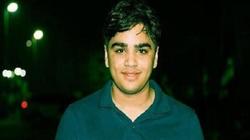 Saudi authorities will execute a dozen imprisoned minor dissidents from the oil-rich and Shia-populated Eastern Province, amid a crackdown led by Crown Prince Mohammed bin Salman against pro-democracy campaigners, Muslim preachers and intellectuals in the kingdom.
Saudi authorities will execute a dozen imprisoned minor dissidents from the oil-rich and Shia-populated Eastern Province, amid a crackdown led by Crown Prince Mohammed bin Salman against pro-democracy campaigners, Muslim preachers and intellectuals in the kingdom. RNA - Lebanon-based Arabic-language al-Ahed news website, citing sources from the European Saudi Organization for Human Rights (ESOHR), reported that the Qatif residents are facing death penalty at various levels of litigation.
Among the detainees already on the death row is Muhammad Issam al-Faraj, born in 2002, who faced charges before reaching the age of ten.
A local source, requesting not to be named, told al-Ahed that judgment is issued by one authority and there is no room for self-defense or the appointment of a lawyer.
The source added that the defendants have no knowledge whatsoever about when and how the hearings were conducted and what were involved. The defendants should only submit to the court order, and their families will not be informed only after they have been executed.
Those executed are buried alone and their families are not allowed to bid farewell or receive their loved ones’ wills.
Eastern Province has been the scene of peaceful demonstrations since February 2011. Protesters have been demanding reforms, freedom of expression, the release of political prisoners, and an end to economic and religious discrimination against the region.
The protests have been met with a heavy-handed crackdown by the regime, with government forces increasing security measures across the province.
Over the past years, Riyadh has also redefined its anti-terrorism laws to target activism.
In January 2016, Saudi authorities executed Shia cleric Sheikh Nimr Baqir al-Nimr, who was an outspoken critic of Riyadh. Nimr had been arrested in Qatif, Eastern Province, in 2012.